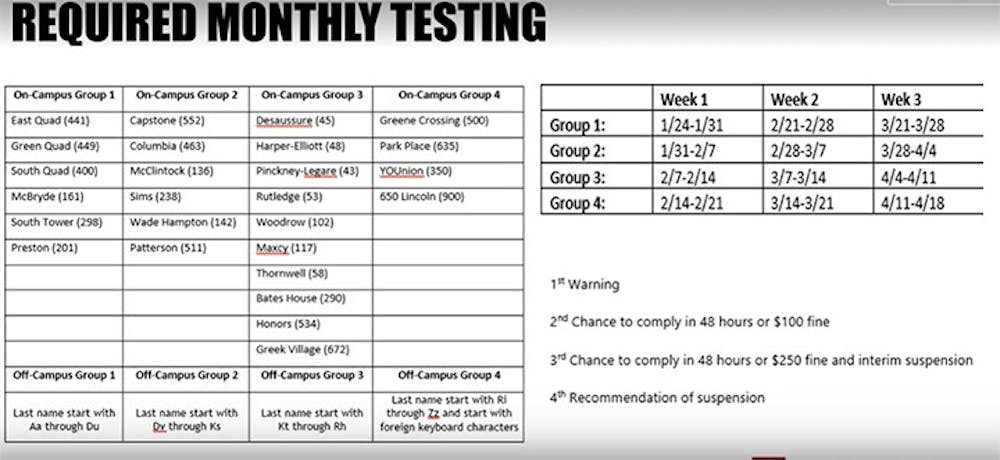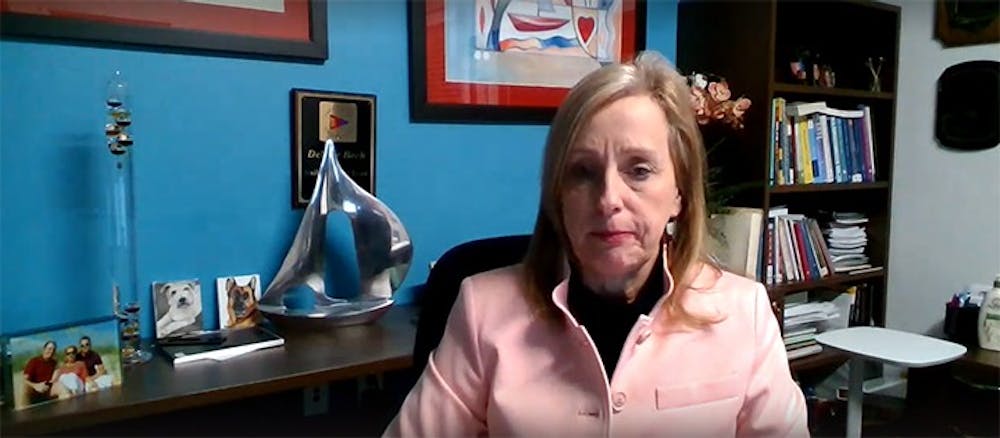The University of South Carolina won't receive enough vaccinations to administer to the "healthy, younger population" of USC until "probably late spring or early summer," according to Student Health Services executive director Deborah Beck.
In a Tuesday virtual town hall, Beck said that scenario could change if emergency-use authorizations allow for more vaccines to be used. As of now, the vaccine will not be mandatory for students when it does arrive, according to Beck.
Beck also said the university is lowering the number of days quarantine will last from 14 to 10 "with testing."
"The CDC right now is saying that, if you have had a direct contact, that somewhere between day five and day seven you should be tested, and then perhaps again on day 10, and then you can leave quarantine on that 10th day," Beck said.
USC is a "point of dispensing," which means the university can receive and use the vaccine according to the CDC's vaccination guidelines. Front-line healthcare workers will receive the vaccine first, other essential workers second and those with higher-risk medical conditions will be third.
Under the required monthly testing plan for the spring semester, all students who need to be tested have been divided into four groups based on where they live and what letters their names start with. Each group will be assigned a week to get tested for COVID-19.

University President Bob Caslen said plans to hold commencement in Williams-Brice Stadium have been made but said there needs to be a "safe environment" for students and possible out-of-town guests.
For Caslen, the event itself isn't what concerns him. Caslen said his worries lie in the activities held before and after commencement, and out-of-town visitors potentially spreading viruses in Columbia.
Provost William Tate said 75% of students will be in at least one class in the spring semester that gives "face-to-face opportunities." A total of 36% of classes will be face-to-face, 21% are hybrid and the rest will be online.
"I would suspect that the grade distribution this semester would look just like the one from the past, which was a little bit better than the one from the prior semester," Tate said.
Tate said for "rigorous courses," including pre-med, pre-law and engineering courses, he compared the grades from the fall 2020 semester to those from semesters in 2009, during the Great Recession.
"We found that there was no difference at all in terms of the learning performance as measured by grades in these rigorous classes," Tate said. "Students appeared to take advantage of the learning modality that they were in and learn at the same rate."

